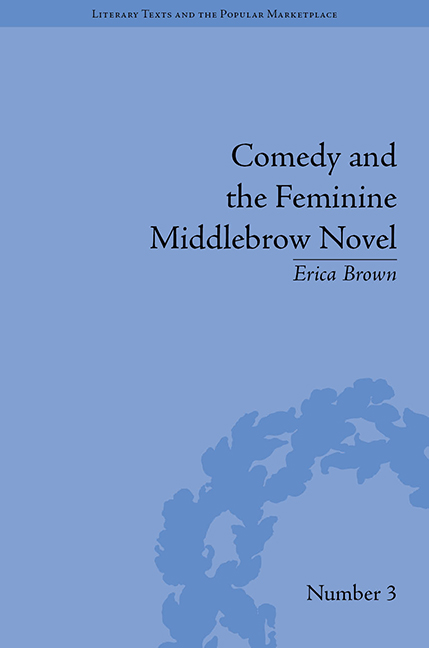Book contents
- Frontmatter
- CONTENTS
- Acknowledgements
- Introduction
- 1 The Middlebrow and Comedy: Elizabeth Taylor and Elizabeth von Arnim's Cultural and Literary Context
- 2 A Comedic ‘Response’ to War? Elizabeth von Arnim's Christopher and Columbus (1919) and Mr Skeffington (1940), and Elizabeth Taylor's At Mrs Lippincote's (1945)
- 3 ‘One Begins to See what is Meant by “They Lived Happily Ever After”’: Elizabeth von Arnim's Vera (1921) and Elizabeth Taylor's Palladian (1946)
- 4 ‘One Shudders to Think what a Less Sophisticated Artist would have Made of It’: The Comedy of Age in Elizabeth von Arnim's Love (1925) and Elizabeth Taylor's In a Summer Season (1961)
- Conclusion
- Notes
- Works Cited
- Index
4 - ‘One Shudders to Think what a Less Sophisticated Artist would have Made of It’: The Comedy of Age in Elizabeth von Arnim's Love (1925) and Elizabeth Taylor's In a Summer Season (1961)
- Frontmatter
- CONTENTS
- Acknowledgements
- Introduction
- 1 The Middlebrow and Comedy: Elizabeth Taylor and Elizabeth von Arnim's Cultural and Literary Context
- 2 A Comedic ‘Response’ to War? Elizabeth von Arnim's Christopher and Columbus (1919) and Mr Skeffington (1940), and Elizabeth Taylor's At Mrs Lippincote's (1945)
- 3 ‘One Begins to See what is Meant by “They Lived Happily Ever After”’: Elizabeth von Arnim's Vera (1921) and Elizabeth Taylor's Palladian (1946)
- 4 ‘One Shudders to Think what a Less Sophisticated Artist would have Made of It’: The Comedy of Age in Elizabeth von Arnim's Love (1925) and Elizabeth Taylor's In a Summer Season (1961)
- Conclusion
- Notes
- Works Cited
- Index
Summary
In Love and In a Summer Season, middle-aged women marry younger men. This scenario brings into question assumptions about acceptable behaviour for middle-aged women, throwing concerns about sexual attractiveness and the suitability of sexual feelings, in particular, into sharp relief. As is typical of von Arnim and Taylor, the subject matter is fraught with pain, and again typically both novelists find the subject to be ripe with absurdity and comic potential. These are sophisticated novels; Faye Hammill has identified the words used to name what is elsewhere called sophistication, and almost all could be used to describe them: distinction, chic, elegance, refinement, cosmopolitanism, wit, urbanity, knowingness, irony, frivolity, experience, discrimination, detachment and complexity. As I demonstrated in the previous chapters, the comedy of Taylor and von Arnim can always be described as ‘knowing’, operating as it does through shared knowledge and understanding, and this is especially true of these novels. When writing these novels about middle-aged protagonists, both novelists were middle-aged, experienced novelists, and there are parallels between subject matter and style. Love and In a Summer Season are, I would suggest, sophisticated comedies of age in the sense of both content and narrative technique, depicting the marriage of middle-aged women to younger men with a particularly mature, experienced comedic voice that combines sympathy with worldly detachment and knowing irony.
- Type
- Chapter
- Information
- Comedy and the Feminine Middlebrow NovelElizabeth von Arnim and Elizabeth Taylor, pp. 89 - 112Publisher: Pickering & ChattoFirst published in: 2014



